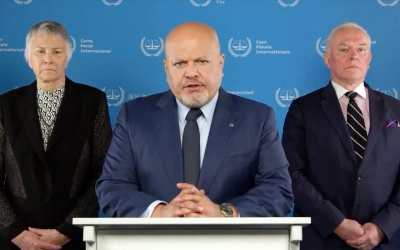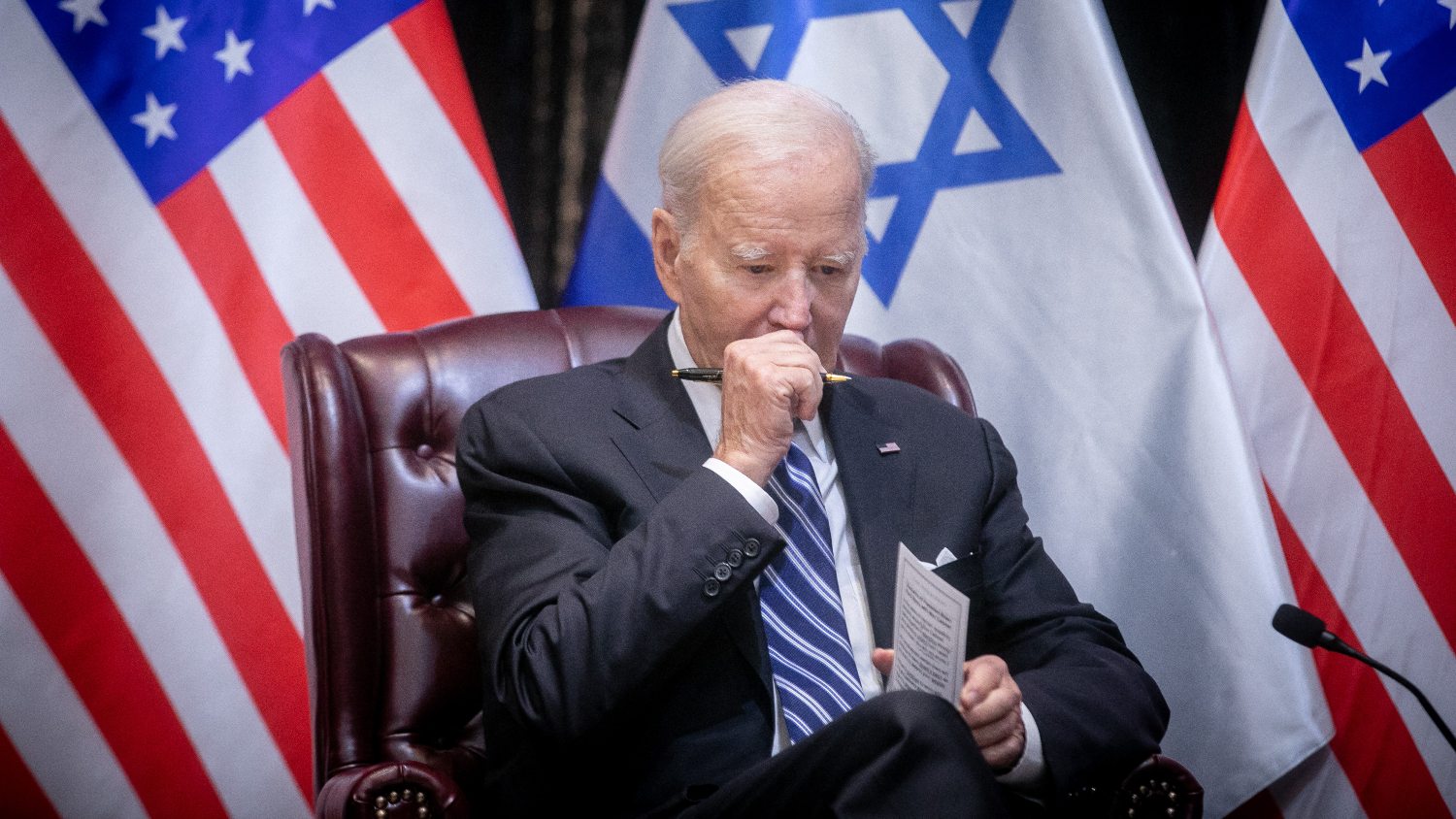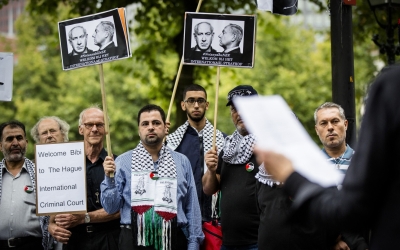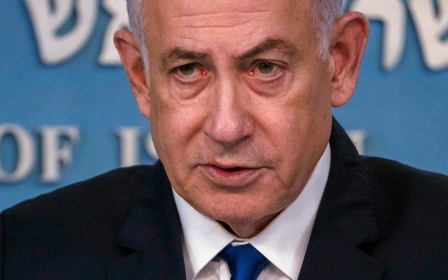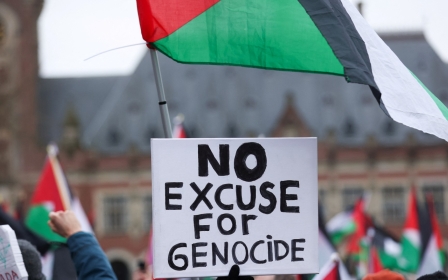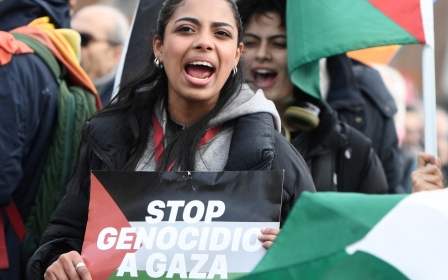War on Gaza: The ICC has suspended Israel's licence to kill
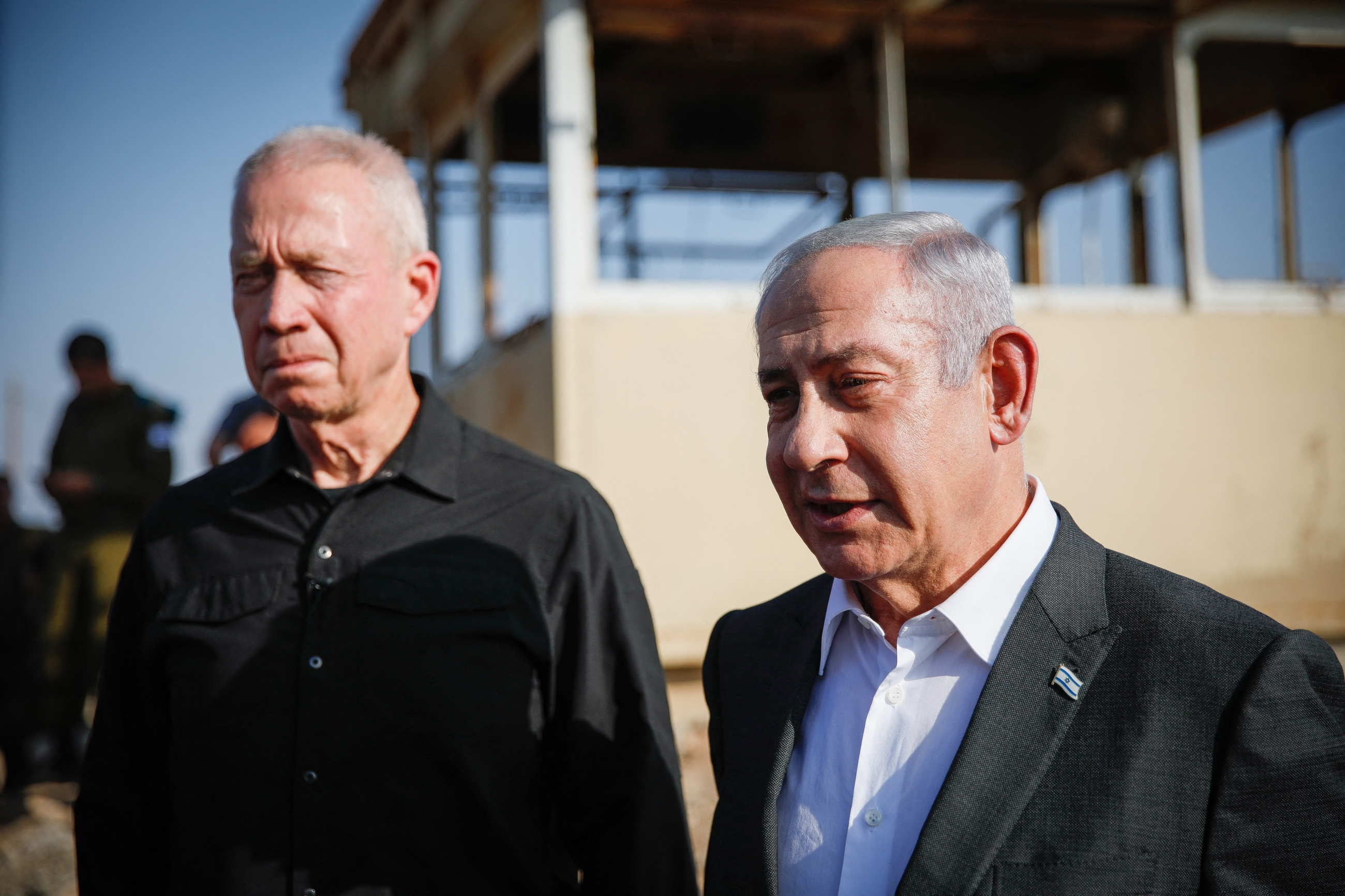
For 76 years, Israel had a narrative more robust as a protective shield than any Iron Dome.
For the victims of the worst case of industrial killing in modern history, self-determination for post-Holocaust Jewry was not merely a necessity, this narrative went, it was a moral imperative. Any state that emerged was immune from judgement, the story went. Israel was beyond international law.
It was allowed to have indeterminate borders. It was allowed to occupy. It was allowed to settle the areas it occupied. It was allowed to regularly attack its neighbours pre-emptively. It was allowed nuclear weapons, outside the control of any regulatory authority.
It could violently discriminate against its non-Jewish minority and still be accepted into the family of democratic nations. It was not just allowed to lay siege to Gaza and starve the territory’s population for 16 years, it was assisted in this by the international community.
Anyone who rejected the credo that this violent state had a right to exist faced political banishment.
New MEE newsletter: Jerusalem Dispatch
Sign up to get the latest insights and analysis on Israel-Palestine, alongside Turkey Unpacked and other MEE newsletters
Israel was a “lifeboat” for Jews facing antisemitism throughout the world. It was not the primary cause of waves of antisemitism. It safeguarded Jews. It did not endanger them.
For 76 years, Israel literally had a licence to kill. Until Monday.
The chief prosecutor of the International Criminal Court (ICC), Karim Khan, did much more than apply for arrest warrants for Prime Minister Benjamin Netanyahu and Defence Minister Yoav Gallant. The ICC prosecutor punctured the myth that any Israeli leader, official or soldier was beyond the reach of international law.
Opening Pandora's box
Netanyahu was right to be nervous about the consequences, which are indeed far-reaching. A real Pandora’s box has been opened by this application.
Yet, for the moment, it’s only an application before the judges of the ICC. There have been occasions in the past when such an application was initially dismissed, as in the case of a Rwandan militia leader sought over crimes committed in the Democratic Republic of the Congo, or for Omar al-Bashir, the former Sudanese president.
Follow Middle East Eye's live coverage of the Israel-Palestine war
But the pretrial chamber of three judges must only convince themselves on two points - that there are reasonable grounds to believe that at least one crime within the court’s jurisdiction has been committed, and that the arrest of those named “appears necessary” to ensure they appear at trial, do not endanger an investigation, and cannot continue to perpetrate the same crime.
Considering the bullying that the court itself has come under, with the US threatening its members with sanctions, a third unwritten imperative will loom large in their minds: the need to uphold the independence of the ICC.
If they bow to this pressure, the ICC’s legitimacy will be finished - and besides, the evidence for the seven charges is overwhelming.
It exposes, as never before, the colonial nature of the stance that international justice applies only to others
The Pandora’s box is large. If arrest warrants are served on Netanyahu and Gallant, every other member of Israel’s war cabinet and military machine, down to the humble reservist uploading videos taken on his iPhone, could be subject to the same charges.
The second point to bear in mind is that the charges only relate to what happened on or after 7 October. Khan based his application on a report by a panel of international law experts, who homed in on Israel’s policy of famine and siege, restricting the means necessary for the population as a whole to survive. The experts did not examine the legal implications of the mass killing of civilians.
If this application succeeds, or even if it is dismissed temporarily, the ICC’s purview goes back to the moment Palestine was admitted as a member in 2015. In 2021, the ICC opened an investigation into allegations of war crimes committed in occupied Palestine since June 2014.
Monday’s application is about the here and now. A growing queue of applications about everything Israel has done in the occupied territories over the last decade awaits.
Long history
The long arm of the ICC’s law has a bitter history. Khan’s application was not the work of one moment, or indeed the work of one man who might have thought that Ukraine would be his main legacy after becoming chief prosecutor in 2021.
The ICC’s jurisdiction over the occupied territories has been bitterly contested, and a series of obstacles had to be overcome before this application could be launched. Palestine was not initially recognised as a state, so it was not allowed to be part of the ICC. Huge pressure, including the threat of US sanctions, was then put on the Palestinian Authority (PA) not to use its membership to pursue Israel.
The ICC then had to debate whether it had jurisdiction over the occupied West Bank and Gaza, and it was only the decision of the previous prosecutor, Fatou Bensouda, which allowed the current proceedings to go ahead. But that debate took six years, from 2015 to 2021.
The need for the ICC to step in had been only too obvious. There had been a number of failed legal attempts to get Israeli officials to face justice abroad under the principle of universal jurisdiction.
Former Prime Minister Ariel Sharon, former Defence Minister Shaul Mofaz and former Foreign Minister Tzipi Livni all faced possible arrest if they travelled to London. But former Prime Minister Gordon Brown defended Livni, saying he “completely opposed” the warrant issued by a British court for her arrest for war crimes, and former Foreign Secretary David Miliband phoned his Israeli counterpart to apologise.
Miliband said at the time of the 2009 incident that British law permitting judges to issue arrest warrants against foreign dignitaries “without any prior knowledge or advice by a prosecutor” had to be changed.
Indeed it was. All such attempts now need the consent of the director of public prosecutions before a warrant is issued.
US ties itself in knots
The current reaction of the US to the ICC’s recommendation for arrest warrants is another indicator of what is at stake. This has ranged from outright threats to the court members to attempts to defund the PA if it continues to back the ICC’s case.
US President Joe Biden expressed outrage at the fact that the ICC was establishing an equivalence between Israel and Hamas by also seeking arrest warrants for three Hamas leaders. “And let me be clear: whatever this prosecutor might imply, there is no equivalence - none - between Israel and Hamas. We will always stand with Israel against threats to its security,” he said.
US State Department spokesperson Matthew Miller went further by saying that Washington’s two preferred outcomes for the leaders of Hamas were assassination or being tried before an Israeli court. “The Israeli government should hold them accountable on the battlefield. And if not a battlefield, then a court of law,” he said.
Biden’s outgoing administration is tying itself in knots. If it follows its own instincts by punishing the PA, withdrawing funds, or undermining the legitimacy of the ICC by slapping sanctions on its judges and prosecutor, the US will be shooting itself in the foot.
If Biden agrees with former Secretary of State Mike Pompeo that the ICC is a “kangaroo court”, and attempts to undermine it, what happens to the ICC’s prosecution of Russian President Vladimir Putin as a war criminal for invading Ukraine, a prosecution the US supports? What happens to all the other important ICC work?
More importantly, what happens to the US attempts to construct a civilian authority to take over Gaza instead of Hamas, if Washington defunds the only other arm of the Palestinian government?
Biden says he wants to rebuild a Palestinian state after this war is over. Instead, he is fully engaged, with the Israelis, in dismantling it.
Watershed moment
For Hamas, the prospect of charges against its leaders is not nearly as problematic. Having welcomed the ICC’s establishment of jurisdiction over the occupied Palestinian territories, Hamas condemned the court’s decision to seek warrants for its political bureau chief Ismail Haniyeh, Gaza leader Yahya Sinwar, and Qassam Brigades commander Mohammed Deif, arguing that armed resistance against occupation was enshrined in UN resolutions.
But as Hamas is listed as a terrorist organisation in much of the western world, nothing much will change, apart from the fact that Haniyeh might not trust a visit to Egypt in the current climate.
The ICC action is urgently needed to stop the barbarous war that is now being prosecuted
Whichever way you look at it, this is a watershed moment. It punctures Israel’s immunity and deeply embarrasses its backers. It exposes, as never before, the colonial nature of the stance that international justice applies only to others.
Khan himself quoted an unnamed western leader as telling him that the ICC was built for “Africa and for thugs like Putin”. As Khan observed, this was a sad indictment of a court which was created as the legacy of the Nuremberg trials.
In this regard, Aipac is right to warn the US that if the ICC warrants succeed, the same could be applied to American troops. “These actions by the court pose a serious threat: Past and current American and Israeli officials and citizens could face secret arrest warrants or summons issued by the court that ICC member states are obligated to carry out,” Aipac said in a statement.
For all these reasons, the ICC action is urgently needed to stop the barbarous war that is now being prosecuted.
Kicking the habit
It is a war without end. It is a war without an endgame, as no credible plan has been devised for the future of Gaza. It is a war where hundreds of thousands of Palestinians in Gaza are herded like cattle from one tent to another, while Israel continues to cut off all aid. And this is all happening under the umbrella of impunity.
The ICC move has split the countries that have thus far put their weight behind Israel’s seven-month offensive. The UK is becoming isolated from Europe in its insistence that the court does not have jurisdiction in Palestine. France, Belgium and others have expressed support for the ICC investigation.
So, too, has Josep Borell, the EU foreign policy chief who reminded states that are parties to the ICC’s Rome Statute that they must implement the court’s rulings.
But for those leaders, like Biden, who are finding it hard to kick the habit of a lifetime, support for Israel is now coming at a cost. It means denying apartheid, denying genocide, and denying war crimes such as mass starvation. The charge sheet is growing, and it’s becoming impossible to defend.
The war has shredded not just Israel’s international reputation, but the global standing of all those who continue to support it - and for them, the writing is on the wall. Not before time.
The views expressed in this article belong to the author and do not necessarily reflect the editorial policy of Middle East Eye.
Middle East Eye delivers independent and unrivalled coverage and analysis of the Middle East, North Africa and beyond. To learn more about republishing this content and the associated fees, please fill out this form. More about MEE can be found here.



